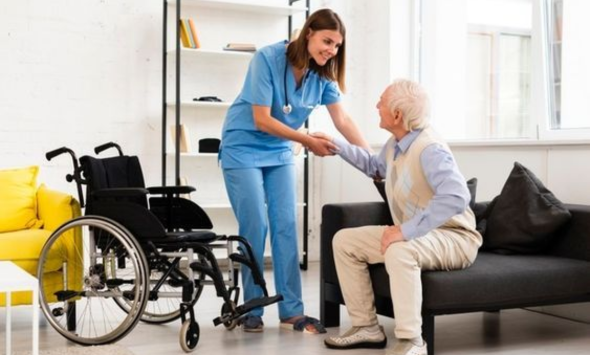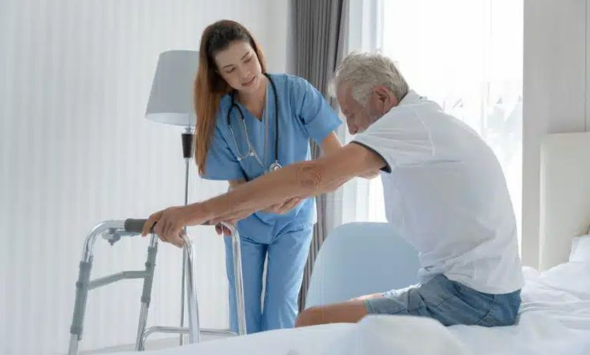Preventing Falls and Fractures in the Elderly: An Orthopedic Perspective

Why Are Seniors More Prone to Falls and Fractures?
As we age, our bones become weaker, balance decreases, and muscles lose strength, making falls more common. A simple fall might result in bad fractures, most often in the hips, wrists, and backbone. But the good news is that many falls can be prevented with the right strategies and orthopedic care.
Common Causes of Falls in Seniors
- Weak Bones and Muscles: Osteoporosis and muscle loss (sarcopenia) increase the risk of fractures even with minor falls.
- Poor Balance and Coordination: Age-related changes in vision, inner ear function, and reflexes can affect stability.
- Home Hazards: Slippery floors, loose rugs, poor lighting, and cluttered walkways can create dangerous fall risks.
- Medication Side Effects: Certain medications can cause dizziness, drowsiness, or a drop in blood pressure, leading to falls.
- Chronic Conditions: Arthritis, diabetes, and neurological disorders like Parkinson’s disease can affect mobility and coordination.
How to Prevent Falls and Reduce Fracture Risk
1. Strength and Balance Exercises
Regular exercises like walking, yoga, and resistance training can improve muscle strength and balance.
2. Home Safety Modifications
- Remove loose rugs and clutter
- Install grab bars in bathrooms
- Improve lighting in hallways and staircases
3. Wear Proper Footwear
Supportive, non-slip shoes can reduce the chances of tripping or slipping.
4. Bone Health Management
- Maintain a diet rich in calcium and vitamin D
- Get regular bone density tests
- Take supplements or medications as prescribed by a doctor
5. Medication Review
Consult a doctor to adjust medications that may cause dizziness or affect balance.
6. Use Assistive Devices
Canes, walkers, and orthopedic braces can provide additional support and stability.
Taking Proactive Steps for Safety
Falls are a serious concern for seniors, but they are not inevitable. With preventive care and early orthopedic treatment, seniors are able to stay mobile and independent.
When to See a Doctor?
If you or a loved one experience frequent falls, joint pain, or signs of osteoporosis, consulting an orthopedic specialist can help assess risks and provide necessary treatments.

Expert Orthopedic Care with Dr. Rahul Khanna
For personalized fall prevention strategies and orthopedic care, consult Dr. Rahul Khanna, a trusted orthopedic specialist. Protect your mobility and stay active—schedule a consultation today!
Emergency?
24 Hour Ready
Call Us for Emergency
+91-9828501360
Book an Appointment
Seamless Fitness Care Access: Booking an Appointment with Your
Trusted Doctor
FAQ's
Bone pain, loss of height, and fractures from minor falls can indicate osteoporosis.
With proper treatment, including surgery or therapy, many fractures can heal, but prevention is always better.
Doctors recommend a bone density test every 1-2 years for older adults at risk.
While they provide support, combining them with exercise and home modifications is essential for full fall prevention.
A balanced diet helps, but lifestyle changes, exercise, and medical guidance are also necessary for bone health.